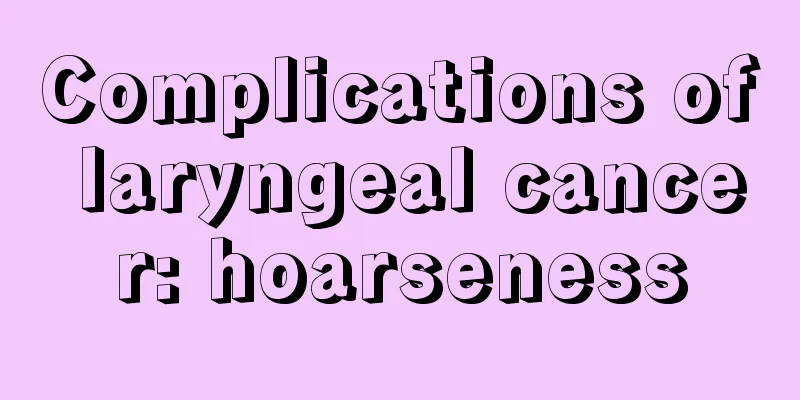The relationship between kidney and bladder

|
There is actually a very important relationship between the kidneys and bladder. If one of them becomes diseased, it will affect the other. Therefore, it is best to go to the hospital for relevant treatment in time when a disease occurs. In this way, you can effectively prevent your condition from becoming more serious, and also excrete some harmful substances from the body as soon as possible to avoid complications. 1. Excrete metabolic products and harmful substances that enter the body The human body is metabolizing every moment. In this process, some unnecessary or even harmful wastes are inevitably produced. A small part of them is excreted through the gastrointestinal tract, and most of them are excreted through the kidneys, thus maintaining the normal physiological activities of the human body. In addition, the kidneys can excrete some toxic substances that enter the body. Some chemical poisoning can cause damage to the kidneys because these chemicals must be eliminated through the kidneys. If the kidneys are diseased, the excretion of these harmful substances will be affected, and waste will accumulate in the body, causing various diseases. We figuratively call the kidney's function of retaining nutrients and excreting toxins a "blood sieve." 2. Maintain water balance through urine production This is the main function of the kidneys. When blood flows through the glomerulus, due to pressure, a liquid called primary urine is filtered out that is similar to plasma but does not contain protein. When the primary urine passes through the renal tubules, most of the water, all of the sugar and part of the salt are reabsorbed and sent back to the blood, but most of the nitrogen is no longer absorbed back. The remaining concentrated fluid containing residual substances is urine, which accounts for about 1% of the original urine. The normal daily urine volume is 1000-2000 ml, which is generally light yellow in color and has a specific gravity between 1.003-1.030. If the specific gravity is too high, too low, or remains unchanged, or the urine volume is too much or too little, there is a possibility of renal insufficiency. 3. Maintain electrolyte and acid-base balance in the body The kidneys regulate various ions (electrolytes) in the body. For example, the regulatory characteristics of sodium ions (Na+) are more excretion if you eat more, less excretion if you eat less, and no excretion if you don't eat; for potassium ions (K+), it is more excretion if you eat more, less excretion if you eat less, and excretion without eating; for chloride ions (Cl-), it is completed through the absorption and excretion of Na+, and the secretion process of H+ and ammonia (NH3). In addition, the kidneys also regulate the balance of ions such as phosphorus (P3-), calcium (Ca2+), and magnesium (Mg2+). The balance of these electrolytes is important for the osmotic pressure stability of body fluids. |
<<: What to do if your face is burned by a cigarette butt
Recommend
What are squamous epithelial cells?
Friends who are familiar with medical knowledge w...
What items need to be checked for bile duct cancer
Nowadays, there are more and more types of diseas...
The three most feared symptoms of bladder cancer
The three most feared symptoms of bladder cancer ...
Adherence to postoperative adjuvant chemotherapy effectively prevents recurrence of colorectal cancer
As a common cancer, colorectal cancer can be temp...
The fastest way to expel urinary stones
Urinary stones are a very common disease in daily...
How to clean the scale in the humidifier
Humidifiers are generally used in seasons with re...
What are the symptoms of cervical muscle spasm
When the human body sits, stands or sleeps for a ...
How to remove contact lenses
Wearing contact lenses may be a little uncomforta...
You must go to the hospital to see a fibroid
Do you have to go to the hospital for fibroids? P...
Royal jelly for hair loss treatment
Hair loss has become a hair problem that troubles...
What causes diarrhea in hot weather
As the weather gets hotter, people's demand f...
Tips for keeping healthy in spring: do 5 things to avoid getting sick
As the saying goes, a year's plan begins with...
What causes low platelets in pancreatic cancer
Low platelet count in pancreatic cancer may be ca...
Is the method of distinguishing genuine and fake liquor effective?
Liquor is a traditional drink in my country, and ...
What harm does emulsified oil do to people
Emulsified oil can be used for some commercial pu...









